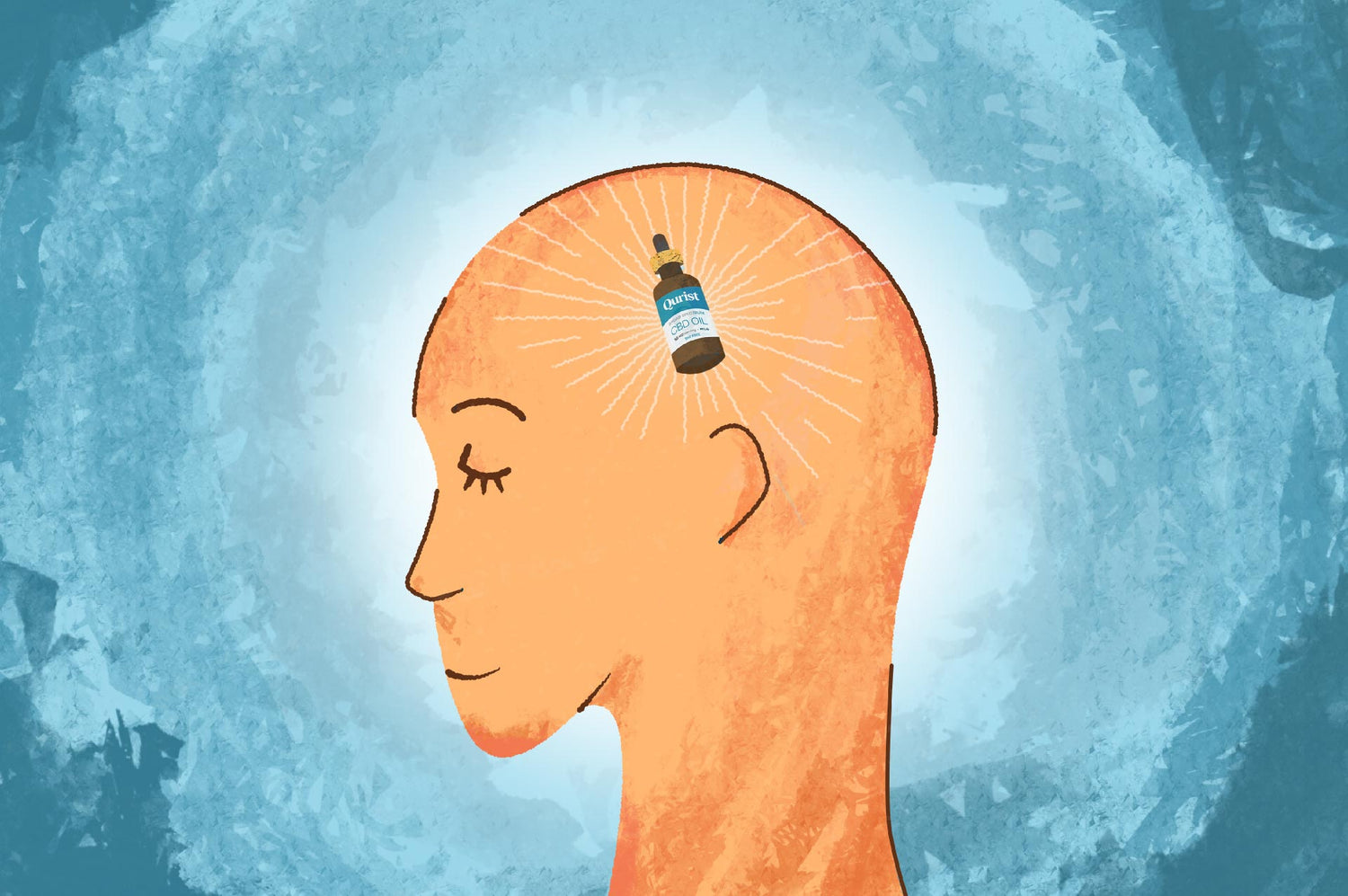CBD for Anxiety, Epilepsy and Everything in Between
The therapeutic potential of CBD (cannabidiol) for neurological disorders is gaining global recognition. With its neuroprotective, anti-inflammatory, and anticonvulsant properties, CBD is emerging as a promising alternative to traditional pharmaceuticals. From epilepsy and Parkinson’s disease to anxiety and multiple sclerosis, research highlights CBD’s ability to alleviate symptoms with fewer side effects than conventional treatments.
Research indicates that the use of CBD to treat various neurological disorders is set to rise. With its recent influx into the market as a product and an important ingredient in a range of consumables, CBD has already demonstrated great potential.

Neurological diseases cause degeneration of the central nervous system by damaging the nerves which connect the brain and spinal column. The typical, unmistakable sign of neurological deterioration is the gradual decrease of physical aptitude; a few case documents illustrate symptoms that become excessive and challenging health risks.
While neuroscientists have discovered more than 600 neurological illnesses, the most typical conditions include Parkinson’s disease, schizophrenia, epilepsy, and multiple sclerosis.
Understanding Neurological Disorders
Neurological disorders stem from damage to the brain, spinal cord, or nerves, leading to symptoms like:
- Chronic pain
- Muscle spasms
- Seizures
- Cognitive decline
- Mood disorders (anxiety, depression)
Common conditions include:
- Epilepsy (Dravet syndrome, Lennox-Gastaut syndrome)
- Parkinson’s Disease (PD)
- Multiple Sclerosis (MS)
- Anxiety & PTSD
CBD for Neurological Disorders
- One of the neurological conditions that has seen progress with CBD oil’s neuroprotective properties is Parkinson’s Disease (PD). According to some studies, those who used CBD reported a considerable reduction in pain and inflammation.
- Patients suffering from Parkinson’s Disease often suffer from medicine-related tremors or uncontrolled muscle movements, and CBD has demonstrated a positive impact on easing those involuntary muscular movements.
- Research has also signified how CBD can improve pain sensitivity, motor function, rigidity, and other effects of Parkinson’s Disease and even provide a more excellent response to schizophrenia when compared to the antipsychotic prescription medications.
- While Parkinson’s Disease results in a few significant complications in the latter stages, psychosis is among the more common ones, often causing delusions and hallucinations.
- CBD oil has been found to have a significant ability to reduce the severity of these symptoms, with no noticeable adverse effects. Patients are also using CBD to achieve restful sleep.
Top CBD Oils in India for Neurological Support
| Brand | Best For | Type | Strength | Price Range |
|---|---|---|---|---|
| Qurist | Anxiety, PTSD | Broad-spectrum | 500–1000mg | ₹1,800–4,00 |
| Cannarma | Parkinson’s, MS | Full-spectrum | 500–1500mg | ₹2,000–5,000 |
Several preclinical studies have demonstrated CBD to potentially exhibit anti-epileptic, antioxidant, anti-inflammatory, antipsychotic, anxiolytic and anti-depressant properties.
There is scientific evidence for its effectiveness in treating some of the cruellest epilepsy syndromes, such as Dravet syndrome and Lennox-Gastaut syndrome (LGS), which typically do not respond to anti-seizure medications. Recently the FDA approved the first ever CBD-derived medicine, Epidiolex - which has been widely adopted as the best treatment for these conditions.
CBD has exhibited an ability to reduce anxiety and depression in patients. Researchers have also suggested that it can be used on patients with a variety of related conditions including Post Traumatic Stress Disorder (PTSD).
Brain scans of patients to whom CBD was administered showed changes in blood flow patterns in regions of the brain associated with stress and anxiety and an appropriately dosed CBD oil had antidepressant and anxiolytic effects. In clinical studies, CBD was shown to be safe, well-tolerated and efficacious in mitigating the symptoms associated with several types of seizure disorders and childhood epilepsies.
There is also strong evidence for the efficacy of CBD on Multiple Sclerosis (MS). The use of CBD has shown significant improvement in spasticity and pain, without changes in disability measures. MS debilitates the brain, spinal cord and nerves, CBD has been known to help alleviate stiffness and muscle spasms and sleep disorders.

Since CBD interacts with the endo-cannabinoid system, which uses the nervous system to interact with the body, there is immense potential for CBD to be used in the making of targeted medicines for a range of neurological and nervous disorders.
This Article is Medically Reviewed by Dr. Rachna(BAMS)
About Dr. Rachna
She has knowledge of Ayurveda and 15 years of experience practicing as a general physician, She love to interact with patients, treating their various health issues, counseling them, and advising them to the best of her ability.
She has a special interest in treating pain-related issues, diabetics, and mental health-related disorders.
She is currently working with Qurist a trusted medical cannabis company.
References:
https://bit.ly/3r17l5n
https://bit.ly/3DRyAXF





Leave a comment
All comments are moderated before being published.
This site is protected by hCaptcha and the hCaptcha Privacy Policy and Terms of Service apply.